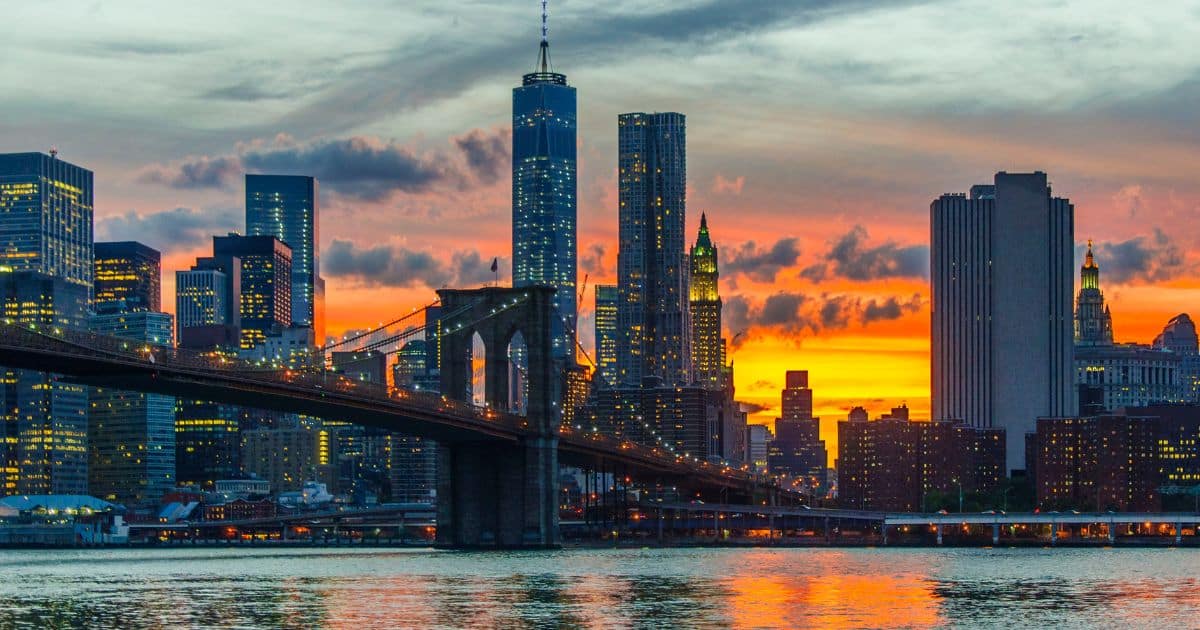The recent string of lawsuits by veterans and multistate operators (MSOs) against the Office of Cannabis Management (OCM) and its parent agency, the Cannabis Control Board (CCB), in New York has significantly impacted the state’s medical marijuana market and has currently suspended the rollout of any new retails within the state.

Recently a group of veterans is claiming the state has primarily kept licenses from disabled veterans “and other minority groups the law prioritizes.” MSOs argue that the OCM and CCB acted improperly in creating the framework for recreational marijuana licensing.
Both groups have accused the agencies of allowing operators without a license to proliferate in the state, placing restrictive conditions on licenses, and delaying marijuana licensing in New York City to the detriment of its citizens.
Background Information
In 2021, the Marijuana Regulation and Taxation Act (MRTA) was signed into law by New York, effectively legalizing recreational marijuana use for adults over 21. The MRTA also set up the Cannabis Control Board (CCB), an independent agency responsible for crafting regulations for businesses seeking to enter the market.
The CCB then created the Office of Cannabis Management (OCM) to oversee licenses for medical and recreational marijuana. The OCM was tasked with evaluating applications, issuing licenses, and setting regulations to ensure a fair playing field for all participants in this new industry.
However, the recent lawsuits have halted further licensing until these issues are resolved. The Coalition for Access to Regulated & Safe Cannabis (CARSC) is one of the plaintiffs in this case, a trade group consisting of MSOs from the cannabis industry who are fighting for a more favorable licensing process for themselves, as opposed to a fair and equitable system for all.
The group has accused the OCM and CCB of favoring New York-based applicants with no valid reason why licensees should only be from New York.
Veteran-led groups also have their own grievances, claiming that the state has largely kept licenses from disabled veterans “and other minority groups the law prioritizes.”
They have argued that this lack of access to cannabis business opportunities further perpetuates an injustice already disproportionately affecting these communities. As a result, they are calling on regulators to take action in order to ensure fair and equitable licensing.
Claims and Allegations
The lawsuits brought forward by CARSC and veteran groups have some serious allegations against the OCM and CCB. The first is that regulators have allowed traders without a license to increase in the state, creating an uneven playing field for those seeking to enter the cannabis industry. This has allegedly been coupled with restrictive conditions imposed on licenses issued by the OCM, further limiting the opportunities available to many applicants.
The second allegation from CARSC and veterans’ groups is that the state has largely kept licenses from disabled veterans “and other minority groups the law prioritizes.” This accusation is especially concerning given that these communities are already disproportionately affected by the criminalization of marijuana and the lack of access to business opportunities in the industry. The groups argue that this lack of access to licenses is a form of discrimination against veteran and minority applicants. Thus, the OCM must take action to ensure an equitable licensing process.
In addition, CARSC has accused the CCB of delaying marijuana licensing in New York City for months as part of its “temporary” hold on issuing licenses. This has resulted in a backlog of applications, leaving applicants in limbo and unable to move forward with their businesses. The group argues that this delay is unfair and counterproductive for the industry as a whole, as it will only further disadvantage those who already lack access to capital or resources necessary to get started.
These accusations have been met with frustration from many industry professionals, who feel that these measures have hindered the progress of the industry and put many businesses in jeopardy. It is clear that to ensure a fair and equitable market, regulators must take steps to rectify this situation as soon as possible.
As the lawsuits continue, it remains unclear when OCM and CCB can start reissuing licenses. In the meantime, many applicants are left in the dark, unable to move forward with their business plans until a resolution is reached. This situation has dramatically strained many businesses in the industry, and it is now up to the courts to decide how best to move forward.
Impact of Delay
The delay in the licensing process has greatly impacted the cannabis industry in New York City, as applicants have been unable to move forward with their applications and businesses for months now. As previously mentioned, many applicants are now stuck in an indefinite limbo as they cannot submit their applications and receive their licenses while the lawsuits are ongoing.

The delays have also negatively impacted those lacking access to capital or resources necessary to get started in the industry. Those from marginalized communities are already at a disadvantage when securing the necessary resources to get their businesses off the ground, and this delay has only further exacerbated that issue. As a result, many of these applicants have been unable to move forward with their plans and are in danger of losing out on valuable opportunities.
What Are Their True Intentions?
The current lawsuit brought forward by CARSC and its member MSOs has prompted many to wonder if this is a concerted effort to stall the licensing rollout for social equity licensees as much as possible. If this is the case, it will allow large capitalized companies to come in at the start of 2024 and dominate the market while all their competitors are currently struggling in survival mode after these lawsuits halted the progress of many businesses.
It’s important to note that this potential delay has far-reaching implications for the industry, especially for those from marginalized communities who already lack access to the capital or resources necessary to get started with their business plans. While some of these applicants may be able to secure licenses eventually, they may find that they are at an even more significant disadvantage than before due to the delay in licensing. As a result, this could lead to large companies dominating the market and further exacerbating existing disparities in access to cannabis business opportunities.
The potential delay of the rollout of New York’s cannabis licenses has severe implications for businesses across the industry. If CARSC and its members successfully stall the progress of applications, it could have a devastating effect on businesses, large and small. It is now up to regulators to take urgent action to ensure an equitable licensing process and allow applicants to move forward with their business plans.
Ultimately, these lawsuits have strained many businesses in the industry, but they also present an opportunity for regulators to ensure a fair and equitable process. By taking decisive action now, they can help to protect businesses from being further disadvantaged by the delay of licensing. It is clear that in order for the industry to continue its upward trajectory, regulators must take steps to rectify this situation as soon as possible.
Keep updated on all the latest news and updates in the Cannabis industry here at Beard Bros Pharms by signing up for our Friday Sesh Newsletter here. Always Dank and Never Spam!
- Maryland Leads the Way in Cannabis Pardons, Setting an Example for Much-Needed Cannabis Reform
- Military Construction and Veterans Affairs Bill Amendments Could Change Medical Marijuana and MDMA-Assisted Therapy Options for Veterans
- Thailand’s U-Turn on Recreational Cannabis Use
- Chicago Police Department Revises Policy on Searches Based Solely on Marijuana Odor
- Ohio’s Senate Bill 56 Postponed, Leaving Details of Issue 2 Still Unresolved
- Sports Stars and Well Known Entertainers Join Forces Calling on Trump for Cannabis Reform














